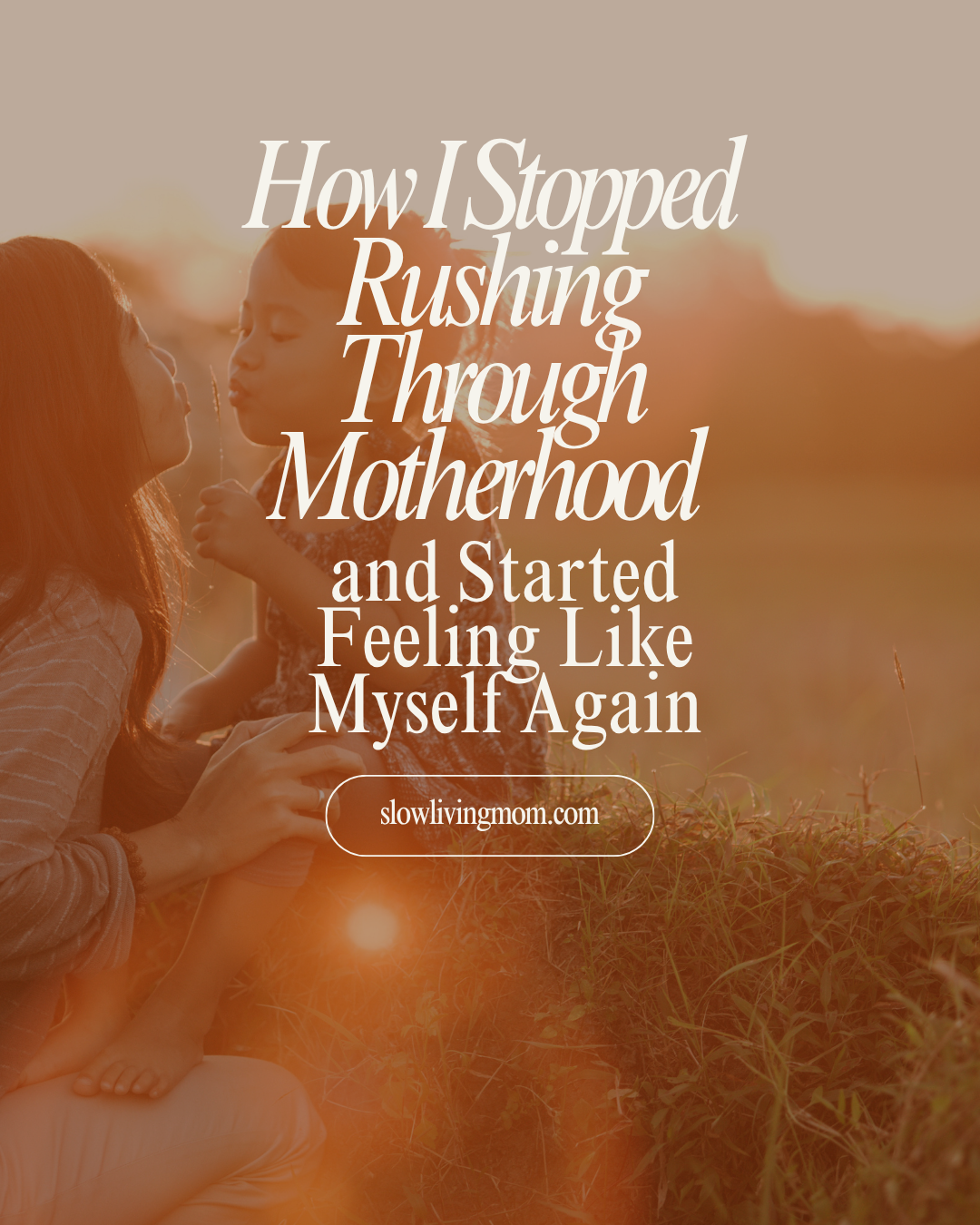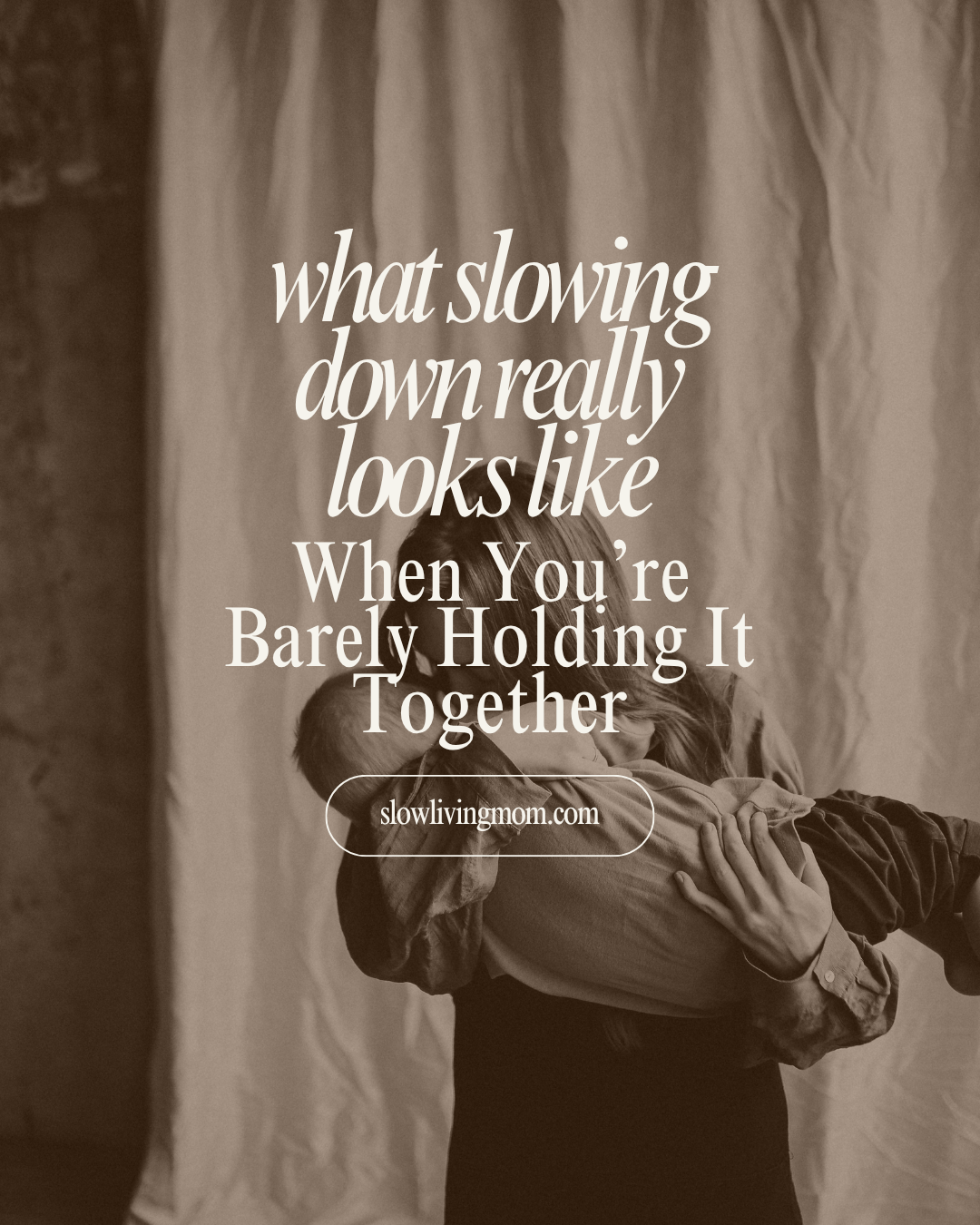5 Signs Your Nervous System Is In Survival Mode
If you’ve ever ended the day thinking, “Wait… what even happened today? Did I actually live it, or did I just survive it?” you’re not alone.
For so many of us, especially moms, life can feel like one long game of catch-up. You’re juggling meals, messes, meltdowns, and maybe even a job (or two). You’re keeping tiny humans alive, managing a house, and answering texts you swore you’d respond to three days ago. Your brain is never off.
And here’s the thing: when you live in that constant go-go-go mode, your body takes notes. Your nervous system quietly slips into survival mode. It’s like your brain flips a switch from “I’m safe” to “We’re in danger,” even if the only “danger” is a pile of laundry and a toddler wielding a crayon.
Survival mode isn’t just a stress response, it’s your body’s way of protecting you. The problem is, when it stays switched on too long, it starts running the whole show. You stop feeling grounded. You start reacting instead of choosing. You forget what calm even feels like.
So, how do you know if you’re stuck there? Let’s talk about it.
But first, if you’ve been craving more: to feel like yourself more, to enjoy your days more (not just the weekends), etc. then download this romanticize your life and motherhood resource. It’s free, it’s simplified, and can be implemented even if your life feels busy & chaotic like mine.
1. You’re tired… but also wired
You collapse on the couch at the end of the day exhausted. But the second your head hits the pillow? Boom! Your brain starts running a highlight reel of every single thing you did wrong, forgot to do, or need to do tomorrow.
This “tired but wired” feeling is a hallmark of survival mode. Your body is physically worn out, but your nervous system is still on high alert, pumping out stress hormones like you’re about to run from a bear. Except in your case, the “bear” is just an unpaid bill or a kid who refuses to eat dinner.
2. Your patience is gone
It’s like your fuse went from long and flexible to one tiny spark away from lighting the whole thing. The smallest things (a spilled drink, a whiny “Moooooom,” a partner asking what’s for dinner) send you into instant frustration.
When your nervous system is stuck in fight-or-flight, it doesn’t care about measured, rational responses. It cares about survival. Which means you’re quicker to snap, shut down, or check out completely. And then you feel guilty for it (because, hi, mom guilt).
3. Your body feels… off
Survival mode doesn’t just live in your head, it shows up in your body, too. Headaches that won’t quit. A stomach that flips at the smallest stress. Random aches or muscle tension. That tight, shallow feeling in your chest when you realize your to-do list is already impossible.
Your body is basically holding its breath all day long. And the more it does that, the harder it is to feel ease, joy, or even connection to your own life.
4. You can’t focus (no matter how hard you try)
You start a task… then remember something else you need to do… then open your phone… then realize it’s been 20 minutes and nothing’s done.
When you’re in survival mode, your brain isn’t prioritizing deep, focused thinking. It’s scanning for threats, distractions, and anything that might need immediate attention. It’s like your mental tabs are all open at once, and you’re clicking between them without ever finishing one.
5. Joy feels like a distant memory
This one’s sneaky. You might still be doing “fun” things like playing with your kids, going for walks, having coffee with a friend, but it all feels muted. Like you’re watching your own life from the outside.
Survival mode dulls your capacity for joy because your body’s not focused on thriving. It’s focused on getting through. And when you’re stuck there, even the sweetest moments can feel strangely flat.

Why this matters (and why it’s not your fault)
Here’s the thing: your body is doing exactly what it’s designed to do. Your nervous system isn’t trying to ruin your life, it’s trying to keep you alive. The problem is, our modern “always on” culture keeps pulling that survival lever over and over, even when we’re safe.
Add motherhood into the mix, with its constant demands, unpredictability, and emotional load and it’s no wonder so many of us are walking around with nervous systems that think we’re in a crisis.
It’s not weakness. It’s biology.
So, how do you get out of survival mode?
There’s no one-size-fits-all answer, but the shift starts with noticing. The moment you can name what’s happening “Oh, I’m not broken, I’m just in survival mode” you’ve already taken back a little power.
From there, small, intentional actions can start telling your body, You’re safe now.
- Breathe deeper: not the quick, shallow breaths you take all day, but slow inhales that make your belly rise.
- Move your body gently: stretch, sway, walk, shake out your shoulders.
- Get present: notice the way your coffee smells, the sound of your kid’s laugh, the feel of the sun on your skin.
- Rest when you can: not as a reward for productivity, but because your body needs it to heal.
And please, for the love of everything, drop the guilt. Survival mode isn’t proof that you’re failing. It’s proof that you’ve been carrying a lot (maybe too much) for too long.
Your nervous system is your body’s built-in security guard, and right now, it might just need a reminder that the danger has passed. The more you tend to it with compassion and small acts of care, the more you’ll feel the shift back to safety.
You deserve more than just surviving. You deserve to live fully, deeply, and in your own time.


